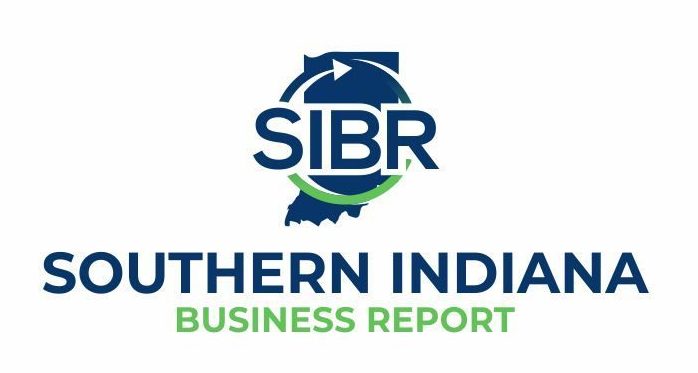Communities encouraged to create shared visions, strategies through READI
Southern Indiana Business Report
INDIANAPOLIS – The new Indiana Regional Economic Acceleration and Development Initiative (READI) will dedicate $500 million in state appropriations to promote strategic investments to make Indiana a magnet for talent and economic growth. Gov. Eric Holcomb announced the launch of the program on May 3 after unveiling the concept of READI in his State of the State address in January. The Indiana General Assembly funded the program as a part of its new biennial budget.
READI is expected to attract at least $2 billion of local public, private and philanthropic match funding that will propel investment in Indiana’s quality of place, quality of life, and quality of opportunity.
“Indiana is uniquely positioned to make transformational investments in our communities that will catalyze economic and population growth for years to come,” said Gov. Holcomb. “READI will lead the nation in encouraging regional collaboration, and it will equip Indiana regions with the tools and resources needed to implement strategic investments in quality of place and innovation, creating a once-in-a-generation opportunity to transform our state for residents and for future generations of Hoosiers.”
Through this initiative, the state will encourage neighboring counties, cities and towns to partner to create a shared vision for their future, mapping out the programs, initiatives and projects that are critical for them to retain talent today and attract the workforce of tomorrow. The Indiana Economic Development Corporation will award up to $50 million per region to support the implementation of strategies focused on making positive developments in quality of place and quality of life, innovation, entrepreneurship, and talent attraction and development.
To participate and seek funding through READI, Indiana communities will collaborate to define their regions and create regional development plans that show how the region will be transformed from its current state to one that leverages unique opportunities and removes barriers to growth to propel its future. Regional investments are expected to attract a 4:1 match of local public and private funding and may include strategies focused on physical projects, such as infrastructure, workforce housing developments, the revitalization of blighted or vacant properties, and cultural amenities, as well as sustainable, multi-year programs, such as talent attraction initiatives, public-private partnerships to advance innovation in industry, and small business support services.
All Hoosier communities are invited and encouraged to create or join regions and to pursue funding through READI. Important dates and deadlines for the initiative are outlined below. More information, including answers to frequently asked questions and detailed guidelines on regional development plans, is available at IndianaREADI.com.
READI timeline:
- May−July: Indiana communities define regions
Indiana counties, cities and towns are encouraged to coordinate and self-identify their proposed regions. During this time, the IEDC will host READI informational meetings across the state to detail the initiative and guidelines for regional development plans. Communities will have until July 1 to define their region and notify the IEDC of their intent to seek funding through READI.
- July−August: Regions develop strategic plans
Regions will convene a broad, diverse group of stakeholders, including major employers and anchor institutions, education partners, economic development professionals, philanthropy partners, and elected officials, to create a regional development plan that outlines the current state of the region, its vision for the future, and a game plan to invest in its growth and prosperity.
The IEDC will provide planning grants up to $50,000 to identified regions to support this effort, and regions will have until Aug. 31 to submit regional development plans, which will be made available to the public. Detailed guidelines for regional development plans are available online at IndianaREADI.com.
- September− October: Committee reviews regional applications
The IEDC board of directors will form a READI review committee to evaluate regional development plans. Each region will have the opportunity to present its vision, goals and strategies that will positively impact the area’s quality of place and quality of life, innovation, entrepreneurship, and talent attraction and development. The committee will establish criteria to evaluate plans and will host a series of review meetings that will be open to the public.
- November−December: State finalizes funding decisions
The review committee will make funding recommendations to the IEDC board of directors. Once approved, the IEDC will award READI funding to selected regions to advance implementation of the projects and programs designed to catalyze economic growth and talent development in Indiana.
Spearheaded by Gov. Holcomb, READI builds on the framework and successes of the Indiana Regional Cities Initiative and the 21st Century Talent Regions Initiative, encouraging regional collaboration and data-driven, long-term planning to develop, attract and retain talent in Indiana. The IEDC will lead the initiative and will work closely with its partner state agencies to align goals and funding mechanisms to ensure that projects and programs proposed by regions are in line with and coordinated with broader state initiatives.
For more information and updates, visit IndianaREADI.com and follow #IndianaREADI.
About IEDC
The Indiana Economic Development Corporation leads the state of Indiana’s economic development efforts, helping businesses launch, grow and locate in the state. Governed by a 15-member board chaired by Gov. Eric Holcomb, the IEDC manages many initiatives, including performance-based tax credits, workforce training grants, innovation and entrepreneurship resources, public infrastructure assistance, and talent attraction and retention efforts. For more information about the IEDC, visit iedc.in.gov.


